Common Challenges Solved by DevOps Service Provider
- Nitin Yadav
- Knowledge
About
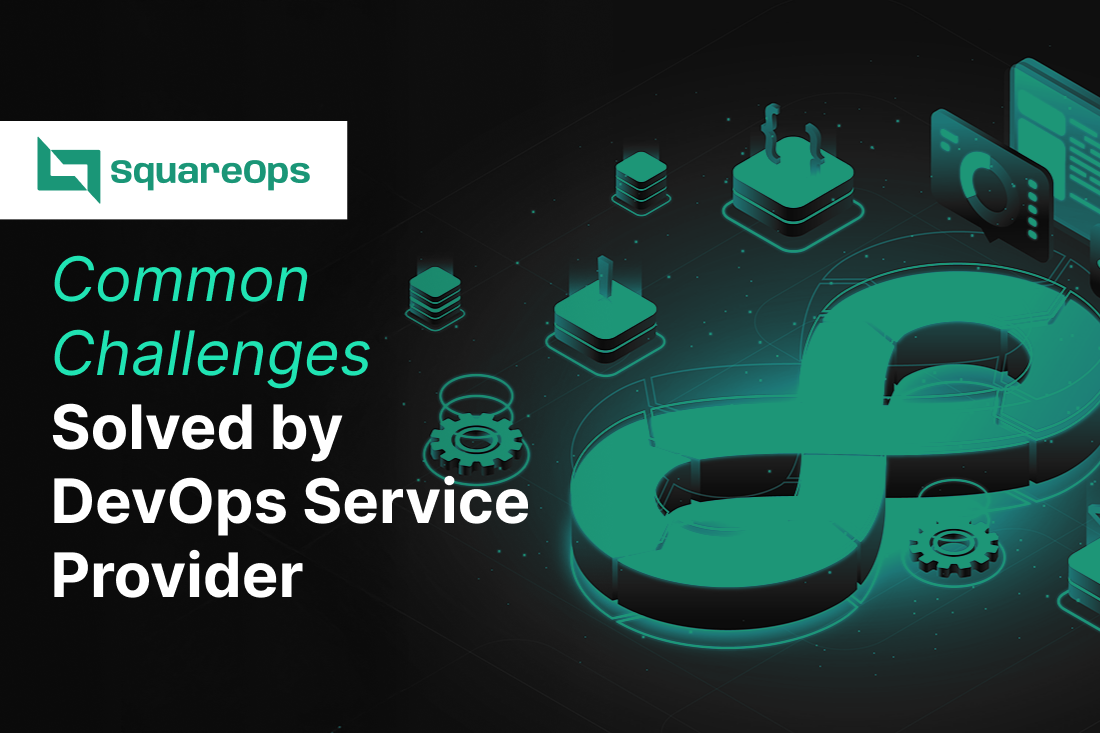
Struggling with slow releases or scaling issues? Discover how SquareOps solves the top DevOps challenges with automation, cloud-native tools, and security-first workflows.
Industries
- AWS, CI/CD Pipelines, DevOps, Devops Service Provider, SquareOps
Share Via
Introduction
Delivering software faster, safer, and more efficiently is no longer a competitive edge—it’s a requirement. Yet many businesses struggle with outdated systems, siloed teams, and unpredictable deployments. This is where a seasoned DevOps service provider like SquareOps becomes your transformation catalyst.
At SquareOps, we help startups and enterprises unlock the full potential of DevOps by building automation-first, scalable, and secure cloud infrastructure. In this guide, we’ll explore the most critical challenges modern teams face—and exactly how we solve them at SquareOps
1. Slow, Manual Software Delivery Processes
The Challenge:
Manual deployments and testing cycles lead to frequent bugs, delayed releases, and inconsistent environments.
How SquareOps Solves It:
- We build robust CI/CD pipelines using GitLab CI, Jenkins, and GitHub Actions.
- Automate testing, build, and rollback workflows for faster feedback.
- Leverage Infrastructure as Code (IaC) tools like Terraform for consistent provisioning.
The Result:
- Deployment frequency increases by up to 80%.
Reduced human error and greater release reliability.
2. Dev & Ops Teams Working in Silos
The Challenge:
When development and operations don’t collaborate, performance issues go unresolved, and incident response lags.
How SquareOps Solves It:
- We embed DevOps culture and train your teams in collaborative workflows.
- Define shared metrics like MTTR, change failure rate, and lead time.
- Implement ChatOps tools (SlackOps, incident bots) for real-time visibility.
The Result:
- Unified goals and seamless handoffs across development and operations.
Happier, more productive teams.
3. Infrastructure That Fails to Scale
The Challenge:
Legacy systems can’t keep up with usage spikes, leading to app slowdowns or downtime.
How SquareOps Solves It:
- Migrate your workloads to AWS, Azure, or GCP using cloud-native architecture.
- Implement Kubernetes for automated scaling, high availability, and resilience.
- Use tools like Datadog and Prometheus to proactively monitor capacity.
The Result:
- Always-on performance even during peak traffic.
30–50% cost savings via efficient resource provisioning.
4. Poor Security and Compliance Coverage
The Challenge:
Security becomes a bottleneck when it’s applied late or manually.
How SquareOps Solves It:
- Integrate security into your CI/CD pipelines (DevSecOps).
- Automate code scanning with tools like Snyk and Checkov.
- Enable policy-as-code for infrastructure compliance (e.g., OPA, Sentinel).
The Result:
- Faster, safer releases that meet regulatory standards.
- Security as an enabler, not a blocker
5. Delayed Incident Detection and Response
The Challenge:
Without observability, downtime takes hours to detect—and longer to fix.
How SquareOps Solves It:
- Set up full-stack observability using ELK, Grafana, New Relic.
- Create custom alerts and automated remediation workflows.
- Post-incident analysis to prevent recurrence.
The Result:
- MTTR reduced by up to 70%.
Improved SLA adherence and customer trust.
6. Difficulty Managing Multi-Cloud and Hybrid Setups
The Challenge:
Juggling different environments, tools, and configurations slows down DevOps efforts.
How SquareOps Solves It:
- Standardize provisioning across clouds using Terraform.
- Securely manage secrets with Vault, AWS SSM, or Azure Key Vault.
- Centralize monitoring and CI/CD workflows for consistency.
The Result:
- Unified workflows across AWS, Azure, GCP, and on-prem environments.
Simplified operations and governance.
7. No Clear DevOps Metrics or Visibility
The Challenge:
Without data, teams can’t improve. Leadership can’t evaluate performance.
How SquareOps Solves It:
- Define and track key DevOps KPIs: lead time, deployment frequency, change fail rate, MTTR.
- Build real-time dashboards using Grafana, Kibana, or Datadog.
The Result:
- Data-driven decision-making.
- Align engineering KPIs with business outcomes.
Why Choose SquareOps as Your DevOps Partner?
- Proven Experience: Trusted by tech-forward companies across fintech, SaaS, healthcare, and eCommerce.
- Full-Stack Expertise: From Kubernetes and cloud automation to DevSecOps and FinOps.
- Flexible Engagement: Choose between project-based, dedicated DevOps teams, or managed services.
- Always Secure, Always On: Our architectures emphasize uptime, observability, and resilience.
Whether you’re a startup scaling fast or an enterprise modernizing legacy stacks, SquareOps brings the tools, talent, and thinking you need.
Conclusion
Digital agility demands infrastructure that’s fast, secure, and scalable. But getting there requires more than just tools—it requires the right partner.
SquareOps is the DevOps service provider that helps you overcome blockers, streamline delivery, and future-proof your tech stack. We bring cloud-native best practices, security-first automation, and real business results.
Want to build infrastructure that scales as fast as your ambitions?
Frequently asked questions
A partner like SquareOps that helps you adopt DevOps culture, automate delivery pipelines, and manage infrastructure efficiently.
We build CI/CD pipelines, remove manual handoffs, and enable parallelized deployments with rollback support.
Yes—we specialize in cloud-native transformations, from lift-and-shift to re-architecting
Terraform, GitHub Actions, Kubernetes, ArgoCD, Helm, Jenkins, Datadog, Prometheus, and more.
Yes. We help containerize monoliths, integrate APIs, and gradually introduce automation
We implement DevSecOps, IAM policies, secrets management, and automated vulnerability scans
Initial audits start in 1 week. Project timelines vary from 4 weeks to ongoing retainers.
Yes. Our managed service model includes on-call engineering, monitoring, and escalation.
Absolutely. We design, provision, and secure everything from networking to container orchestration.
Book a free DevOps audit on our website or contact us at consult@squareops.com.
Related Posts
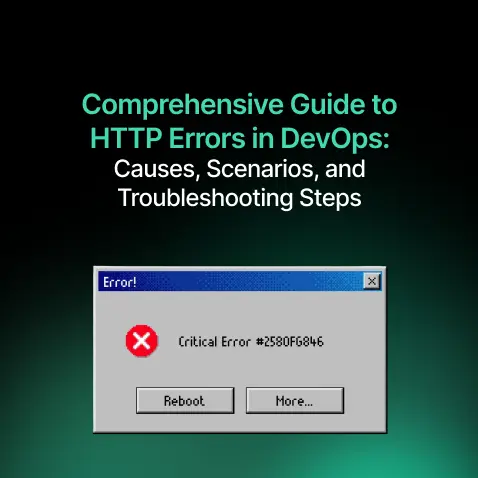
Comprehensive Guide to HTTP Errors in DevOps: Causes, Scenarios, and Troubleshooting Steps
- Blog
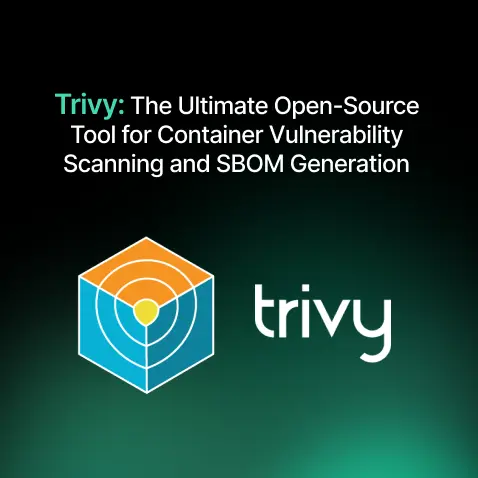
Trivy: The Ultimate Open-Source Tool for Container Vulnerability Scanning and SBOM Generation
- Blog
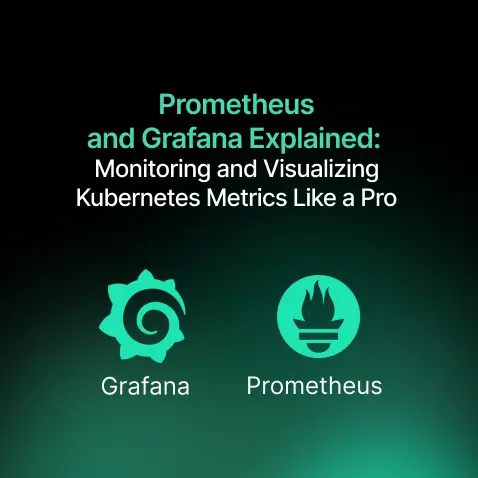
Prometheus and Grafana Explained: Monitoring and Visualizing Kubernetes Metrics Like a Pro
- Blog
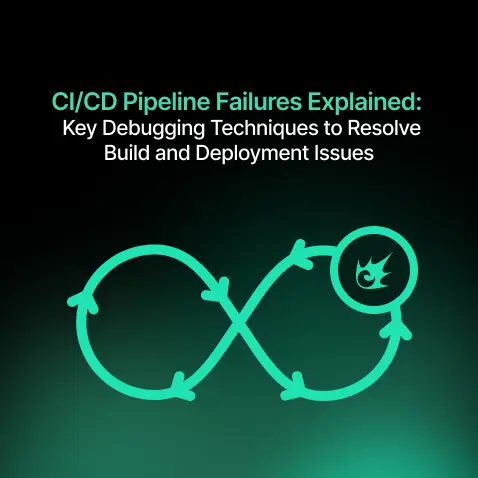
CI/CD Pipeline Failures Explained: Key Debugging Techniques to Resolve Build and Deployment Issues
- Blog

DevSecOps in Action: A Complete Guide to Secure CI/CD Workflows
- Blog

AWS WAF Explained: Protect Your APIs with Smart Rate Limiting
- Blog

